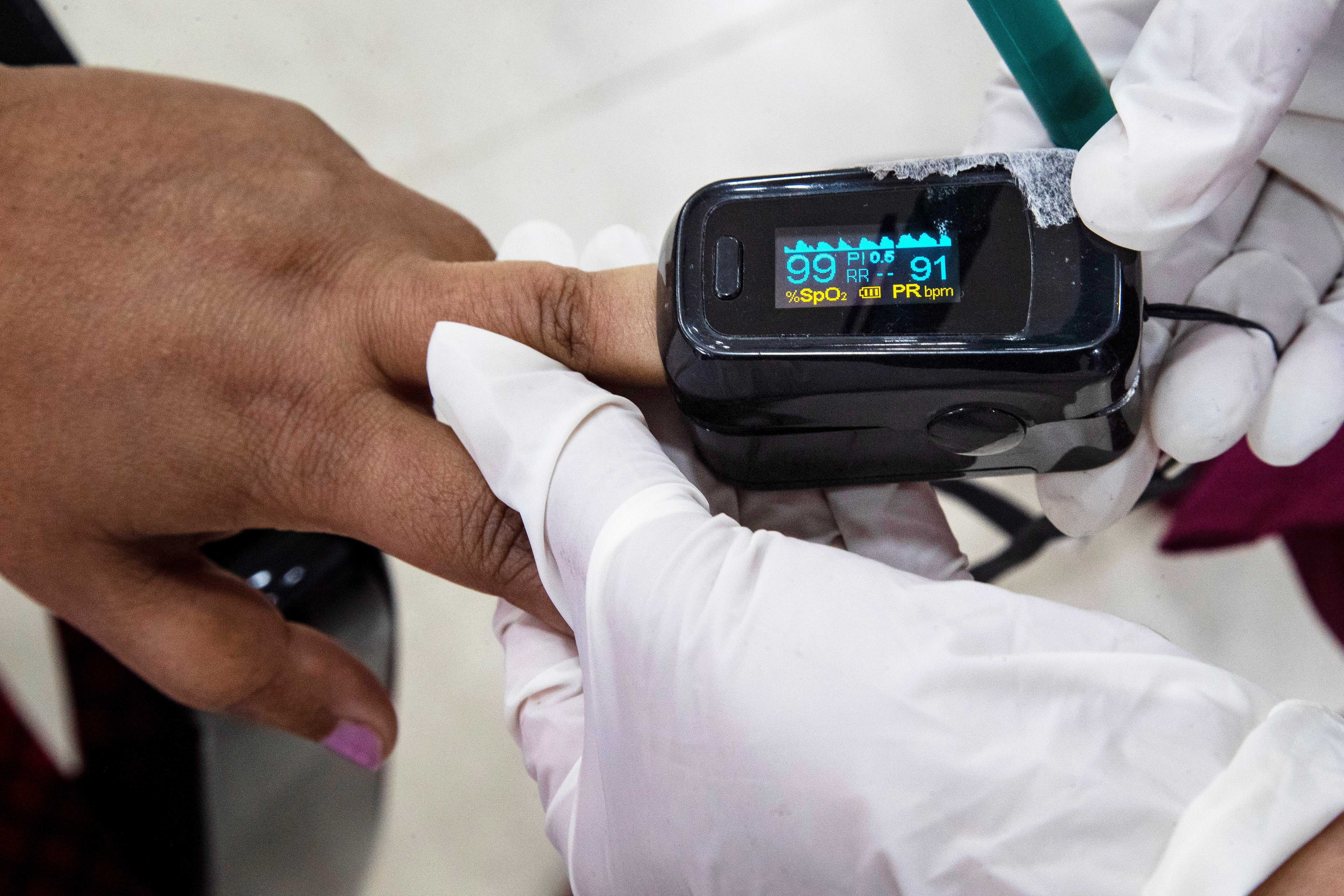Pulse oximeters may misread oxygen levels in people of color. The FDA wants to change that
Federal health officials are proposing changes to make sure medical devices that measure oxygen levels are working for patients of color

Your support helps us to tell the story
From reproductive rights to climate change to Big Tech, The Independent is on the ground when the story is developing. Whether it's investigating the financials of Elon Musk's pro-Trump PAC or producing our latest documentary, 'The A Word', which shines a light on the American women fighting for reproductive rights, we know how important it is to parse out the facts from the messaging.
At such a critical moment in US history, we need reporters on the ground. Your donation allows us to keep sending journalists to speak to both sides of the story.
The Independent is trusted by Americans across the entire political spectrum. And unlike many other quality news outlets, we choose not to lock Americans out of our reporting and analysis with paywalls. We believe quality journalism should be available to everyone, paid for by those who can afford it.
Your support makes all the difference.Makers of medical devices that quickly measure oxygen levels in the blood would have to gather extra data to show that their products work for patients of color, under a new federal proposal released Monday.
The Food and Drug Administration's recommendations apply to pulse oximeters, which are clip-on devices used in hospitals and medical clinics to ensure patients are getting enough oxygen. The FDA said it wants companies to conduct larger studies and include more patients from different racial groups.
By snapping a device onto a finger and then sending two wavelengths of light into the skin, the oximeter measures how much of the light is absorbed and estimates how much oxygen is flowing through the blood.
Oximeters were a critical part of emergency care for patients with COVID-19 during the pandemic. But several studies have suggested that darker skin pigmentation can sometimes throw off the accuracy of readings. In 2021, the FDA warned doctors about potential inaccuracies with oximeters after a study found the devices tended to overestimate Black patients’ oxygen levels, which could lead to delays in getting treatment and increased risks of death.
The issue has become a prominent example of the potential racial biases of medical technology, leading to multiple meetings and studies by FDA regulators since 2022.
The FDA’s draft recommendations, which are not binding, would make several changes to how companies are expected to test their devices, including:
— Enrolling at least 150 patients of different skin tones in clinical studies;
— Including at least 25% of patients with darker skin complexion in each study;
— Evaluating pigmentation of every study participant using at least two different methods, one based on a researcher's evaluation and another based on scientific, light-based measurement of melanin levels in the skin.
The FDA recommendations apply to only professional oximeters used in hospitals, doctor’s offices and other medical settings. The government doesn't regulate over-the-counter oximeters, which it considers “general wellness” devices.
The guidelines wouldn’t eliminate older devices currently used by doctors. But the FDA makes clear it expects to see new diversity data from manufacturers requesting approval for changes or updates to older oximeters.
Monday’s announcement is only a draft. The FDA said it will take public comments on its proposal for 60 days before beginning work on a final version.
___
The Associated Press Health and Science Department receives support from the Howard Hughes Medical Institute’s Science and Educational Media Group. The AP is solely responsible for all content.